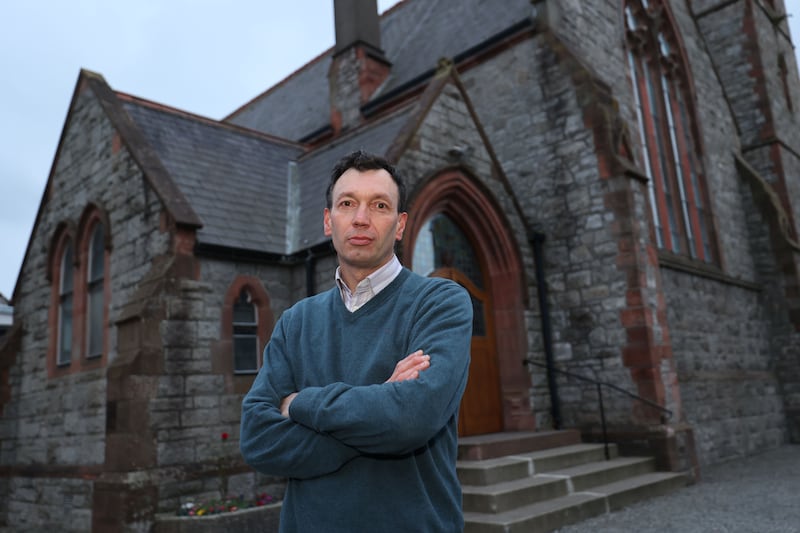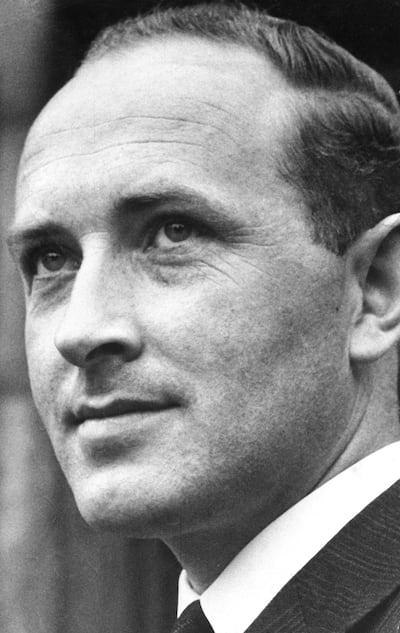Irish unification would be “more likely and easier” to achieve over the next 20 years if Fine Gael’s presidential candidate, Heather Humphreys, is elected, a leading member of the Presbyterian Church in the Republic has said.
The election of a Monaghan Presbyterian would portray the Republic as “the very opposite” of “the Vatican-dominated theocracy” that dominated unionist thinking for much of the last century, said Professor Sam McConkey.
Many Presbyterians in the Republic “including Heather and myself look to the bigger picture” and favour Irish unity, Prof McConkey, an elder at the Presbyterian Church in Clontarf, told The Irish Times.
“If Heather were to be the president of the Republic of Ireland, that would, I would say, make it more likely and easier to reach a peaceful transition over perhaps 10, or 20 years to achieve a united Ireland,” he said.
Prof McConkey, who is Monaghan-born, added, however, decades living in Dublin has shown him that unity “to be frank, is fairly low on people’s agenda”, adding: “Nobody really worries too much about it, there are lots of other issues to worry about.”
The membership by some Presbyterians, or Church of Ireland in the past, or now of the Orange Order is not an issue for the majority of people living in the Republic “south of a line drawn between Sligo and Dundalk”.
“South of that, people don’t worry about my ancestral background, or whether my ancestors were part of the Orange Order. People north of it, perhaps, do,” said Prof McConkey, who heads the Royal College of Surgeons’ School of International Health and Tropical Medicine.
“I think we’ve all grown up a bit and realised that what our grandparents or great-grandparents may or may not have done, frankly, doesn’t matter much, that we’re now creating our own selves,” he said.
 Professor Sam McConkey at the Clontarf and Scots Presbyterian Church, Dublin. Photograph: Nick Bradshaw/ The Irish Times
Professor Sam McConkey at the Clontarf and Scots Presbyterian Church, Dublin. Photograph: Nick Bradshaw/ The Irish Times
Growing up, he said the killing of Fine Gael Senator Billy Fox, the only member of the Oireachtas to be killed during The Troubles, was a seminal moment for every Protestant living along the Border.
Strongly pro-unity, the Church of Ireland politician was wrongly accused by Fianna Fáil’s Brian Lenihan and Kevin Boland of being “a B-Special”, though they subsequently were forced to apologise.
Rossnowlagh, Donegal where upwards of 50 lodges from Donegal, Cavan, Leitrim and Monaghan, as well as visiting Orangemen from Northern Ireland and further afield, took part in a parade which began close to St John’s Parish Church. Photograph: Nick Bradshaw/ The Irish Times
On March 11th, 1974, Fox was killed by a 13-strong IRA gang who had raided the home of his girlfriend near Clones, shooting Fox when he arrived to visit her.
“That was the defining story for me. I tell the story of Billy Fox frequently to people in Dublin when they’re asking about my growing up in Monaghan.
“One of the people who was convicted for it was working as a hair trimmer in Clones and clipped my hair. Another one of them had worked for my father,” said Prof McConkey.
 Fine Gael TD Billy Fox, native of Monaghan and a protestant, pictured in 1969. Photograph: Jimmy McCormack/ The Irish Times
Fine Gael TD Billy Fox, native of Monaghan and a protestant, pictured in 1969. Photograph: Jimmy McCormack/ The Irish Times
“As a minority community, it was seen that the only reason conceivably to kill him was because of his faith and his allegiance to the Protestant community in Monaghan.”
Though not a member of the 230-year-old Orange Order, Prof McConkey said people would benefit from a greater study of the organisation, which, he accepted, is “explicitly anti-Vatican”.
“It does not hold with the Vatican’s approach to religion. The idea of centralised authority that you kowtow to the pope, or you kowtow to the priest or the bishop, or kiss the bishop’s ring, that’s all anathema.”
The organisation’s “unashamedly anti-Vatican” views were a problem 30 or 40 years, but today “a large proportion of people in Republic of Ireland now are also strongly anti-Vatican”.
People holding bitterly pro or anti attitudes to the Orange Order are “living in some sort of tribalistic, sectarian mindset that’s not really in the 21st century in my view”, said Prof McConkey.
“If there’s going to be a peaceful transition to a united Ireland, we really have to understand how various communities have lived here for the last 60 years. And then of course on how it has changed. Now it’s all different,” he said.